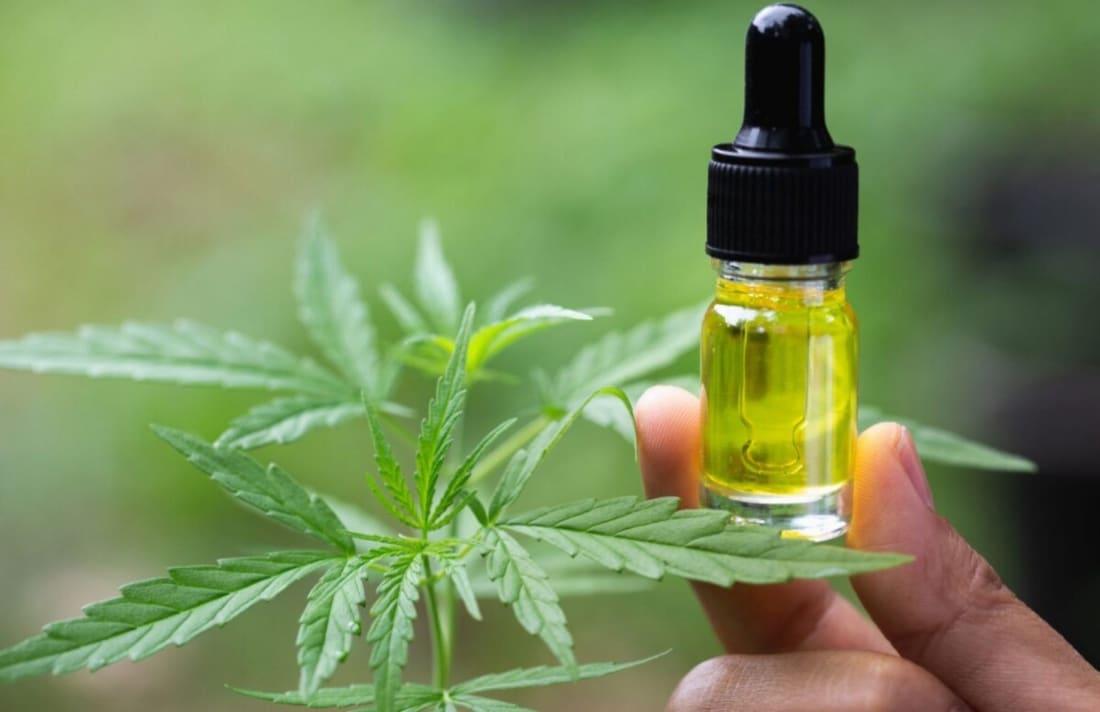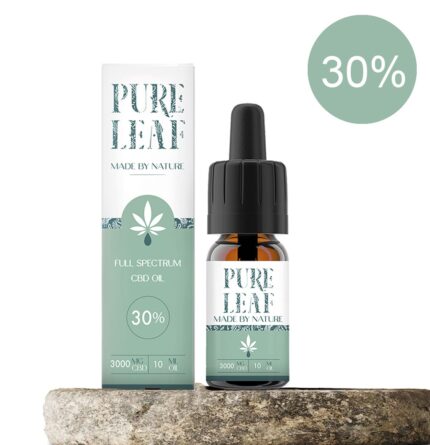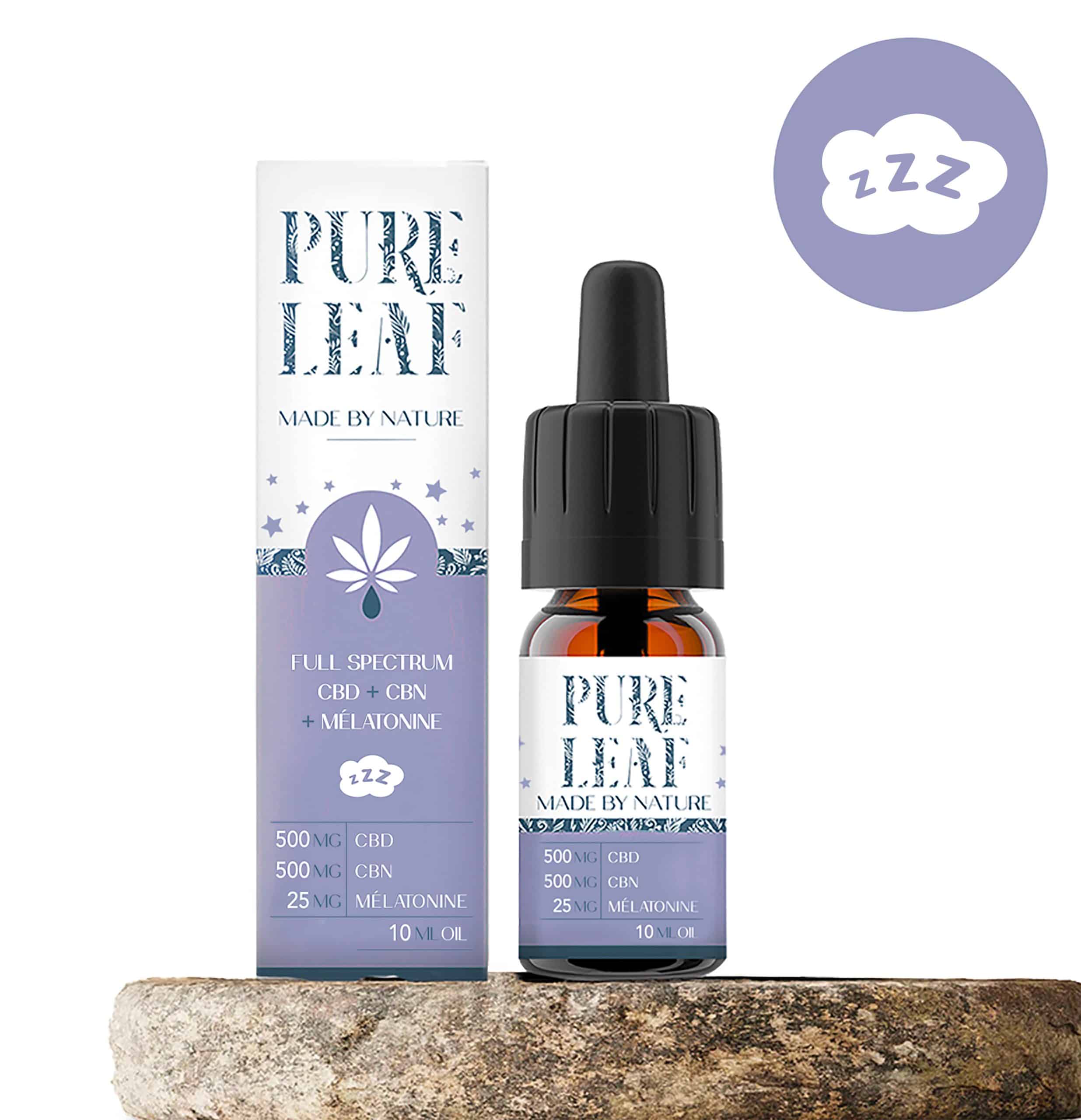What is CBD oil?
Cannabidiol, more commonly known as CBD, is a cannabinoid renowned for its beneficial effects on mood, particularly through its ability to regulate stress and anxiety. It is also recognized for its potential anti-inflammatory and analgesic properties, making it a compound of interest for a variety of therapeutic applications. CBD oil offers these same benefits and is considered one of the best methods of consumption, as it avoids any type of inhalation (unlike flowers or electronic cigarettes) and acts faster than an edible product.
To produce such oils, CBD must first be extracted from the hemp flower. There are four main processes for extracting this molecule, each offering a more or less qualitative result:
Cold-pressing
The plant is frozen and then pressed to extract an unaltered oil.
This is the most natural, simple and eco-friendly process, but it also has the lowest yield, making it more expensive to set up for large-scale production.
Natural solvents
This method involves heating CBD and a natural solvent (such as coconut, olive or sesame oil) together in an oven.
Thanks to the heat, the cannabinoids bind to the fats and lipids in the oil, much like an infusion.
Supercritical CO2
With the help of CO2, the right temperature and ideal pressure, this method enables the cannabinoids contained in hemp to be decarboxylated.
The process consists of transforming unusable acid molecules into molecules that can be assimilated by the body.
Chemical solvents
The principle is to immerse the plant in a chemical solvent in order to recover the CBD and terpenes when the liquid evaporates.
This is the most dangerous method, as it is virtually impossible to remove all solvent residues from the finished product.
There are three main types of CBD oil, distinguished primarily by the presence and concentration of other cannabinoids. These differences influence aspects such as dosage, taste, color and, above all, the effects experienced. Some CBD oils take greater advantage of the entourage effect, a synergy between the plant's various compounds, which can enhance their efficacy compared to other oils containing only isolated CBD.
Isolate
Isolate, which is the purest form of CBD since it contains no other cannabinoids, is particularly suited to new consumers wishing to determine whether pure CBD is sufficient without the intervention of other components. It is also recommended for people undergoing rigorous drug testing. This form of CBD is easily recognized by its almost transparent yellow hue.
Broad spectrum
Broad Spectrum oil is very similar to Full Spectrum oil because it contains several cannabinoids, giving it a higher potential for beneficial effects than an isolate.
Most Broad Spectrum oils are THC-free, but depending on the brand, they can contain up to 0.02% THC.
Full Spectrum
Full Spectrum oil is the most complete of the three, since it containsall the cannabinoids present in hemp, enabling it to produce more present effects, enhanced by the entourage effect, a mechanism whereby the various hemp compounds act synergistically to amplify the plant's individual effects. This action is the reason why this type of oil is more effective than others.
Pure Leaf 30% CBD Oil
€ 95,00CBD, CBN and Melatonin: the ideal sleep cocktail
If you find it difficult to fall asleep (on a regular or occasional basis), then an oil specially designed to improve sleep quality could be an interesting addition to help you enjoy a full, restful night's sleep.
CBN (or Cannabinol) was discovered in 1899, and is the oldest cannabinoid to have been isolated. It is mainly known for its sedative and relaxing properties, making it an ideal companion to complement the relaxing action of CBD.
Often referred to as the "sleep hormone", Melatonin is a molecule produced naturally in our brain whose soporific action helps us fall asleep. It is also involved in regulating our biological clock and circadian rhythm.
Thanks to the addition of these two components, sleep oils not only enable you to fall asleep more quickly thanks to the soporific properties of melatonin and the sedative properties of CBN, but also to spend calmer, more serene nights thanks to the soothing effects of cannabinoids.
Melatonin also plays an essential role in synchronizing the circadian rhythm, an undeniable quality for regulating sleep. However, it is recommended to consume this type of oil at a regular time to help the body adjust and anticipate sleep in an optimal way.
Oil for pets
Just like humans, dogs and cats have an endocannabinoid nervous system and thus CB1 and CB2 receptors, to which the various components of cannabis and hemp attach to produce the range of effects made possible by the plant. They are therefore just as reactive to cannabinoids as we are, and could benefit from the same effects: regulating bodily functions and keeping the body in a state of equilibrium through its action on homeostasis.
This particular type of oil may be useful in cases of eating disorders, stimulating appetite, but also when they are frightened or anxious, such as during fireworks or a trip. And let's not forget that cannabidiol is said to have analgesic and anti-inflammatory properties, helping to relieve pain and inflammation in the event of injury or simply due to advanced age.
The only notable difference between the normal edition and this one lies in the recipe: this oil is formulated with salmon oil, instead of the hemp oil used in the normal editions. This change in no way alters its effectiveness. However, as animals are particularly fond of fish, the scent of salmon ensures that the product can be administered without difficulty.













